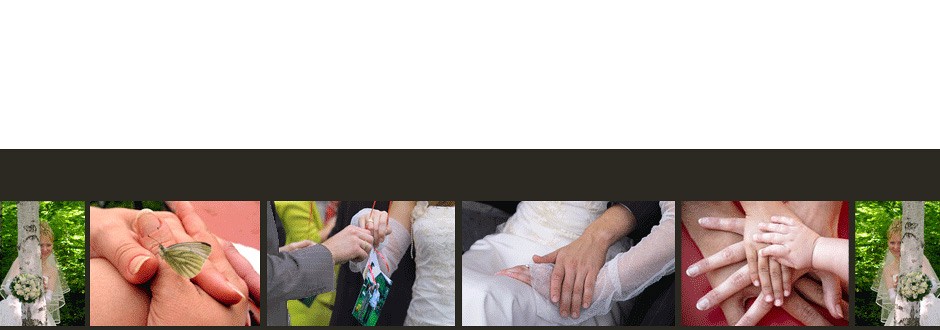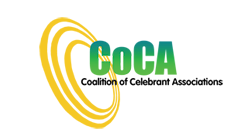The aim of this group of recommendations is to strengthen the training process at all stages, to improve the knowledge and skills of marriage celebrants, to increase professionalism, and to minimise MLCS staff time in addressing compliance.
It is recommended that:
It has been noted by state BDM’s that errors in legal paperwork are generated as much by Ministers of authorized religions as by other Coalition of Celebrant Associations groups. It would seem appropriate therefore that all celebrants complete some level of legal training.
Independent religious celebrants are more comparable with recognized Religious celebrants in that the Marriage Act grants the non-aligned religious marriage celebrant the right to conduct the form of the ceremony according to the precepts of their religious organization, thus they may not require as much training in ceremony.
Civil Marriage Officers in BDMs offer a limited range of ceremony options, thus do not need to tailor ceremonies to the specific needs of their couples. Their physical resources also limit what they are able to offer.
The two units recommended to be added as Core Units are:
Approximately 70% of applicants do not have a business background. The celebrant needs to conduct some basic monetary exchanges for their work and to ensure this is accurate and appropriate. Course notes should recommend these two electives if the trainee has no prior business experience.
Whilst literacy and numeracy (LLN) is a complex area, as the Celebrancy qualifications is at Certificate IV level, it is assumed the student has a level of literacy and numeracy to complete – and the RTO needs to assess this accordingly. RTOs need processes in place to ensure LLN is appropriate to the level of study the student is undertaking. This is an area that ASQA audits under our Standards for RTOs. The obligation is on the RTO to comply.
If a student hasn’t got the level of LLN appropriate to the Certificate IV qualification, one has to question how they are able to complete the qualifiction.
ASQA has also advised CoCA that the Certificate IV in Celebrancy needs a lot more work on specific assessment requirements and critical aspects of evidence. CoCA will commence discussions with the specific Industry Skills Council to address this issue and be recommending that the MLCS work with CoCA on the appropriate legal and other units.
It is recommended that current and future trainers will need to achieve the following:
Current Trainers:
A professional ceremonialist, having a broad celebrancy skill set (as provided for in the compulsory marriage units training package material) will be able to offer a full range of ceremonies. This will also reinforce the knowledge and skills in ceremony design and delivery, working with couples and families and many other common aspects of delivering a marriage ceremony.
Cost Recovery
Applicants for approval by the MLCS to deliver the Marriage Celebrant electives of the Certificate IV in Celebrancy would be required to pay for the assessment of their skills.
Cost Recovery
Unless otherwise stated above, costs for this set of recommendations on Training would be recovered from the applicants and the various bodies in the state and federal system responsible for the planning, delivery and evaluation of the VET system.
Read more … see TABLE OF CONTENTS
5.1 Different approaches to training for different roles.
The aim of this recommendation is to improve the knowledge and skills of all classes of marriage celebrants (Commonwealth & state, religious and civil) who conduct marriage ceremonies.It is recommended that:
- Civil marriage officers in Registry of Births Deaths and Marriages (BDM) and Court Houses – complete 2 of the compulsory legal units of the Certificate IV in Celebrancy.These would be: CHCCEL402 A Maintain knowledge of the legal responsibilities of a marriage celebrant, and
CHCCEL404A Plan a marriage ceremony in line with legal requirements. - Ministers of religion in recognized denominations – complete 2 of the mandatory legal units of the Certificate IV in Celebrancy. These would be: CHCCEL402A Maintain knowledge of the legal responsibilities of a marriage celebrant, and CHCCEL404A Plan a marriage ceremony in line with legal requirements
- Independent religious celebrants – complete the 4 mandatory legal units of the Certificate IV in Celebrancy and 1 of the compulsory core units which would be CHCCEL401A Work effectively in a celebrancy role.
- Independent Civil Celebrants – complete the Full Certificate IV in Celebrancy
It has been noted by state BDM’s that errors in legal paperwork are generated as much by Ministers of authorized religions as by other Coalition of Celebrant Associations groups. It would seem appropriate therefore that all celebrants complete some level of legal training.
Independent religious celebrants are more comparable with recognized Religious celebrants in that the Marriage Act grants the non-aligned religious marriage celebrant the right to conduct the form of the ceremony according to the precepts of their religious organization, thus they may not require as much training in ceremony.
Civil Marriage Officers in BDMs offer a limited range of ceremony options, thus do not need to tailor ceremonies to the specific needs of their couples. Their physical resources also limit what they are able to offer.
5.2 Upgrade training of Civil Marriage Celebrants.
It is recommended that two additional units of study be added to the core competency skills and recommend two particular electives if the trainee has no prior business experience.The two units recommended to be added as Core Units are:
- CUSMPF303A – Prepare for Performance. (or a similar unit that relates to voice and delivery).
- CUFWRT301A – Write content for a range of media. The two recommended electives if the trainee has no prior business experience are:
- BSBSMB405A – Monitor and Manage small business operations.
- BSBSMB406A – Manage small business finances.
Approximately 70% of applicants do not have a business background. The celebrant needs to conduct some basic monetary exchanges for their work and to ensure this is accurate and appropriate. Course notes should recommend these two electives if the trainee has no prior business experience.
5.3 Use the services of ASQA to strengthen training in the VET system.
It is recommended that CoCA and the MLCS utilise the new national training authority, Australian Skills Quality Authority (ASQA) to strengthen the training of celebrants by the VET system. ASQA are responsible for mandating national Literacy and Numeracy (LLN) skills. MLCS and CoCA can work with ASQA to ensure:- National Standards for Trainer Qualifications – Experience as a celebrant a must (varies each state)
- Time Frame – Set minimum time for the course eg VIC UNI = 800 hours
- Registered Training Organisations (RTO’s) – if not doing the course, to take it off their scope and/or check the currency
- Competence testing to be reviewed.
Whilst literacy and numeracy (LLN) is a complex area, as the Celebrancy qualifications is at Certificate IV level, it is assumed the student has a level of literacy and numeracy to complete – and the RTO needs to assess this accordingly. RTOs need processes in place to ensure LLN is appropriate to the level of study the student is undertaking. This is an area that ASQA audits under our Standards for RTOs. The obligation is on the RTO to comply.
If a student hasn’t got the level of LLN appropriate to the Certificate IV qualification, one has to question how they are able to complete the qualifiction.
ASQA has also advised CoCA that the Certificate IV in Celebrancy needs a lot more work on specific assessment requirements and critical aspects of evidence. CoCA will commence discussions with the specific Industry Skills Council to address this issue and be recommending that the MLCS work with CoCA on the appropriate legal and other units.
5.4 Upgrade skill levels for trainers of the Certificate IV Course
The aim of this recommendation is to ensure high standards for trainers of the Certificate IV in Celebrancy course.It is recommended that current and future trainers will need to achieve the following:
Current Trainers:
- MLCS to conduct a knowledge and skills assessment of all current trainers to gain MLCS approval to teach the Certificate IV in Celebrancy core and mandatory units.
- The MLCS assessment would require; a current Curriculum Vitae, proof of their status as a marriage celebrant, proof of having conducted a minimum of 10 weddings in the previous three years and proof of their qualification in Workplace Training and Assessment and the Certificate IV in Celebrancy.
- MLCS approval to be re-assessed every five years. NB in the initial period the Pre-Appointment Assessment process could be used as part of the MLCS assessment procedures
- Mandatory requirements for trainers will be:
- Certificate IV in Celebrancy (including funeral units)
- Certificate IV in Workplace Training and Assessment
- Experience in the elective units
- Proof of status and experience as above.
- Approval from MLCS as a trainer.
A professional ceremonialist, having a broad celebrancy skill set (as provided for in the compulsory marriage units training package material) will be able to offer a full range of ceremonies. This will also reinforce the knowledge and skills in ceremony design and delivery, working with couples and families and many other common aspects of delivering a marriage ceremony.
Cost Recovery
Applicants for approval by the MLCS to deliver the Marriage Celebrant electives of the Certificate IV in Celebrancy would be required to pay for the assessment of their skills.
5.5 Audit of Registered Training Organisations
It is recommended that Auditors of RTO’s be provided with the results of pre-appointment skills and knowledge assessments. This concept is being discussed with ASQA. General auditors do not have celebrancy knowledge.Cost Recovery
Unless otherwise stated above, costs for this set of recommendations on Training would be recovered from the applicants and the various bodies in the state and federal system responsible for the planning, delivery and evaluation of the VET system.
Read more … see TABLE OF CONTENTS
Why does the celebrant qualification need to be changed at this time?
The National Skills Standards Council, part of the Australian Government’s Vocational Education and Training (VET) system has put out a directive to all Industry Skills Councils to ensure all VET qualifications
The National Skills Standards Council, part of the Australian Government’s Vocational Education and Training (VET) system has put out a directive to all Industry Skills Councils to ensure all VET qualifications
- are free of duplication
- focus on skills and tasks, not knowledge alone
- remain relevant to all workers current and emerging needs
Purpose of the Standards
The purpose of the Standards for Training Packages is to ensure Training Packages are of high quality and meet the workforce development needs of industry, enterprises and individuals.
The Standards for Training Packages apply to the design and development of Training Packages for endorsement consideration by the National Skills Standards Council (NSSC).
The purpose of the Standards for Training Packages is to ensure Training Packages are of high quality and meet the workforce development needs of industry, enterprises and individuals.
The Standards for Training Packages apply to the design and development of Training Packages for endorsement consideration by the National Skills Standards Council (NSSC).
The level for a qualification is not decided arbitrarily. The qualifications are set out in this Document:
Australian Qualifications Frameworkhttp://www.aqf.edu.au/Documents2013.pdf
This table shows the differences between Certificate IV and Diploma level courses.
BSBDIV301A Work effectively with diversity
- Recognise individual differences and respond appropriately
- Work effectively with individual differences
See: BSBDIV301A
CHCCEL501 Establish and maintain client relationships
CHCCEL506 Providing and review celebrancy services related to loss and grief
PDF:CHCCEL506
How these skills could be assessed>
PDF: CHCCEL506 ASS
CHCCEL507 Create resources for set-up and maintenance of Professional Celebrancy Practice
PDF: CHCCEL507
How these skills could be assessed>
PDF: CHCCEL507ASS
- Establish and maintain client relationships
- Clarify client needs
- Match services to client needs
- Obtain feedback from clients in relation to one’s celebrancy services
- Provide advice to the clients and potential clients
- Design and document ceremonies
- Oganise ceremonies
- Identify ceremonial elements appropriate to various ceremonies and maintain database
- Evaluate ceremonial elements appropriate to ceremony purpose and client needs
- Conduct public or private ceremonies
- Review ceremonies
- Provide advice to the marrying couple
- Outline the requirements for appointment and ongoing registration as a Marriage Celebrant
- Prepare and complete documentation
- Design and create marriage ceremonies
- Conduct ceremony
- Follow up and review marriage ceremonies
CHCCEL506 Providing and review celebrancy services related to loss and grief
- Scope and prepare services to provide loss and bereavement services in a celebrancy context
- Plan, conduct and review celebrancy services related to loss and bereavement
- Manage the impact of providing loss and bereavement
PDF:CHCCEL506
How these skills could be assessed>
PDF: CHCCEL506 ASS
CHCCEL507 Create resources for set-up and maintenance of Professional Celebrancy Practice
- Clarify celebrant needs and objectives in the celebrancy role
- Create resources and forms
- Store and maintain information
- Use and maintain equipment and machines
PDF: CHCCEL507
How these skills could be assessed>
PDF: CHCCEL507ASS
CHCCEL506 DRAFT ONLY
– DOWNLOAD PDF CHCCEL506 ASS REQS draft v1
Community Services Training Package D 0.1CHCCEL506 Plan, provide and review celebrancy services related to loss and grief
ASSESSMENT REQUIREMENTS
- The assessment requirements provide advice on assessment and must be read in conjunction with the specific detail of this unit of competency and related assessment information for this Training Package.
| Performance evidence: | The candidate must show evidence of the ability to complete tasks, manage tasks and manage contingencies in the context of the job role:
|
| Knowledge evidence: | The candidate must demonstrate knowledge of:
|
| Assessment conditions: |
|
EnvironmentSkills must be demonstrated:
|
|
| ResourcesAssessment must ensure use of:o Relevant legislation o Ceremony documentation/ plan |
|
| PeopleAssessment must involve: o diverse range of clients in a range of situations o people to act as ceremony participants and groups of people to act as audience. |
|
| Assessor Requirements |








